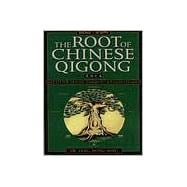
What is included with this book?
| About the Author | |
| Romanization of Chinese Words | |
| Introduction | |
| Foreword | |
| Foreword | |
| Foreword | |
| Preface - First Edition | |
| Preface - New Edition | |
| Introduction | |
| History of Qigong | |
| Basic Concepts of Qigong | |
| Qi and the Human Body | |
| Categories of Qigong | |
| Qigong Theory | |
| General Concepts | |
| Regulations the Body (Tiao Shen) | |
| Regulating the Breath (Tiao Xi) | |
| Regulating the Emotional Mind (Tiao Xin) | |
| Regulating the Essence (Tiao Jing) | |
| Regulating the Qi (Tiao Qi) | |
| Regulating the Spirit (Tiao Shen) | |
| Important Points in Qigong Practice | |
| General Concepts | |
| The Twelve Primary Qi Channels | |
| The Eight Extraordinary Qi Vessels | |
| One Hundred and One Questions | |
| Conclusion | |
| Translation and Glossary of Chinese Terms | |
| Index | |
| Table of Contents provided by Blackwell. All Rights Reserved. |
The New copy of this book will include any supplemental materials advertised. Please check the title of the book to determine if it should include any access cards, study guides, lab manuals, CDs, etc.
The Used, Rental and eBook copies of this book are not guaranteed to include any supplemental materials. Typically, only the book itself is included. This is true even if the title states it includes any access cards, study guides, lab manuals, CDs, etc.